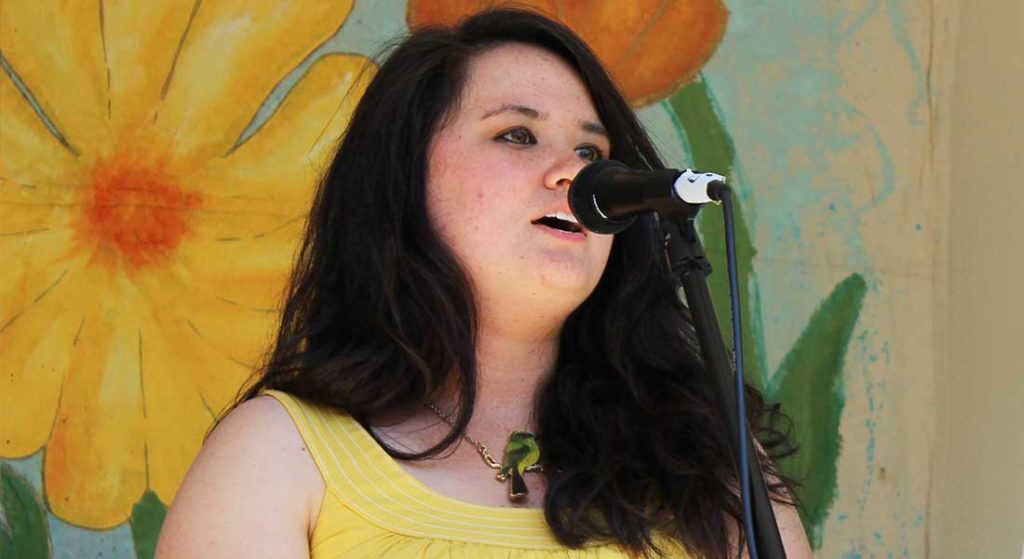Benefits of Music Therapy for Adults with Mental Illness
Music therapy is one of the adjunctive therapies offered at Skyland Trail. Each week clients in our residential and day treatment programs have the opportunity to participate in music therapy.
During these groups, clients use breathing and rhythm exercises to encourage expression of emotion through activities such as drumming and guided imagery. Clients also have opportunities to sing, play instruments and write songs in group sessions.
Music therapy groups are led each week by music specialist, Jeff Barnes. He shares how music therapy at Skyland Trail helps aid clients in their recovery.
Music therapy helps clients with self-confidence.
Clients often come into the music room with little or no self-confidence. What many would consider a basic task – like getting out of bed or walking to lunch – is often very difficult for our clients. Music therapy helps clients break out of this catatonic state and express themselves in ways they could not before.

As clients walk into the music room at Skyland Trail and sit down with a group people with an instrument in hand, the feeling of loneliness starts to diminish.
Music therapy helps clients socialize and prevent isolation.
As clients walk into the music room at Skyland Trail and sit down with a group people with an instrument in hand, the feeling of loneliness starts to diminish. “I” becomes “we” and for 45 minutes, clients are in a band. The connections formed through the music group spreads to the lunchroom, residences and core groups. These bonds allow clients to get out of isolation and be a part of something through music.
Music Therapy dispels the myth that a person has to be “good” at music to take part in the therapeutic experience of a music group.
Music therapy is not limited to individuals who have a musical background. The group is open anyone who has an interest in music despite their skill level. In music therapy, we have a no judgement zone where clients are encouraged to express their emotions through musical activities. Clients may sing or play an instrument for the first time in front of people. The supportive and encouraging group environment gives individuals a seed of open-mindedness which is then transferred to their daily life.
Music therapy gives clients the opportunity to do something they didn’t think they could do.
Many of our clients have never gotten up in front of a group of people to do anything – let alone play an instrument. We have opportunities each week for clients to showcase their talents in a supportive environment. For instance, each week as part of the community meeting, we have a “musical moment” where clients have an opportunity to perform in front of their peers. Leading up to the performance, a person may have high nerves and anxiety. But, with the help of staff members at Skyland Trail, clients learn how to handle these emotions and accomplish a task they thought was once impossible. At Skyland Trail, we give clients the opportunity to perform, sometimes for the first time ever and see the impact that it makes not only on them but on the community as well.
Music therapy often helps clients rekindle their love for music.
Sometimes, mental illness takes away a person’s creativity and passion for music. Clients’ musical relationship may become fractured and scarred, similar to their interpersonal relationships. Through music therapy, we help clients mend their musical relationship and see the impact music has on clients’ wellness and healing.
Music therapy helps with listening.
Just as it’s important to listen in life, it’s important to listen in music. Musicians have to listen to each other play so that they to know when to play their own instrument. When everyone listens and adds in their small part, collectively the melody becomes harmonious and beautiful – not only in music but in life.

Music therapy is a great bridge that helps clients learn the skills to perform and lead as they go out into the world.
Music therapy prepares people to share and lead.
At Skyland Trail, we have many opportunities for clients to perform – either solo or as a group. The experiences and skills learned from performing in front of a group of people at Skyland Trail can be easily transferred to daily life – whether it is in a work meeting or at a dinner party with friends. Music therapy is a great bridge that helps clients learn the skills to perform and lead as they go out into the world.
